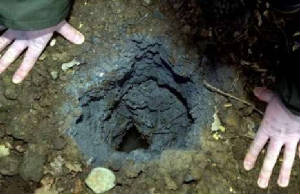 Meteor Coverage? Really?
Meteor Coverage? Really?[Wed, May 1, 2013] In a recent (February 2013) and very rare event - a meteor exploded over a city in
Russia, injuring hundreds and causing damage to buildings in six nearby cities. Local officials in the city of Chelyabinsk
estimated the damage at $32.2 million. Among the major problems – windows and walls destroyed by the shock wave from
the blast created when the meteor, which was estimated at 49 feet across, struck.
While it's unlikely your home will be hit by a meteor
(I cannot recall a claim ever being filed for meteor damage), this unbelievable cosmic crash brings up the ordinary question,
what if?
It is only normal to wonder. But if your home or business is insured, you should know that damage from meteors typically
would be covered under most standard policies. For instance, State Farm states that meteorites are indeed covered by most of their insurance policies. The fine print will usually list a wide range
of different damage causing perils from "fallen objects", and among
them is often a meteorite strike or explosions such as sonic blasts from meteors.
Most policies are written as "open
perils", which means that they cover all events not specifically excluded in the language of the
contract. Those exclusions are usually referred to as acts of G-D and are events such as floods and earthquakes, or war and
insurrection.
Under most homeowner’s policies, meteorites are covered as "falling objects".
A commercial property policy typically provides all-risk coverage that covers property damage and resulting time element loss
if there is direct physical loss or damage to insured property unless specifically excluded.
Policyholders should read and question
the fine print in their individual policies first, but meteorite damage is so rare that it has not been specifically excluded
on most policies. Even if your home insurance is ambiguous, a general rule of thumb is that most policies cover damage caused
by things that fall out of the sky.
Damage to property inside the building would likely be covered if the falling debris first
damages and penetrates the building roof or walls, then damages the property on the inside.
Hundreds of smaller meteorites strike the
Earth’s surface every year, although only 10 to 20 are detected. Such meteorites usually reach the surface having been
burned down by the atmosphere and are too small to cause damage. What can I say, insurance companies love to cover things
that are unlikely to happen.
Have questions or comments, please don't hesitate contact me. Stay safe and informed!